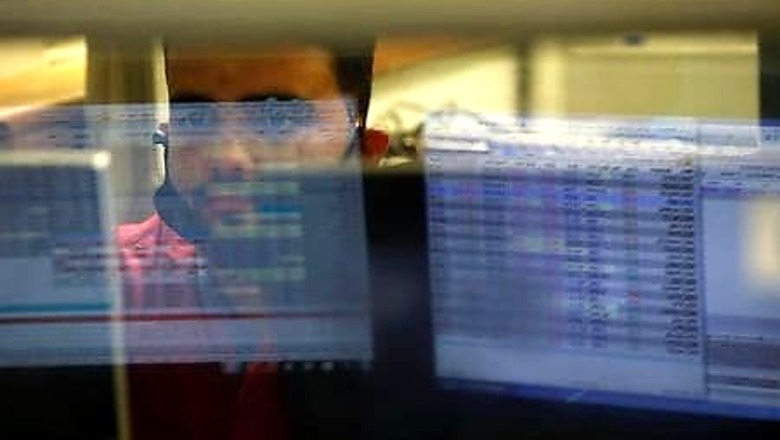
views
LONDON/SYDNEY: World shares rose slightly on Monday after losing $2.3 trillion in the last two sessions in a technology stocks led rout as investors reassessed soaring valuations when the global economy is in a coronavirus-induced recession while oil prices dropped.
European stocks, which have fewer technology stocks compared to the United States, started the week in the black driven by a 1.2% gain in Germany’s Dax and London’s export-heavy FTSE 100
UK stocks, meanwhile, were helped by a falling pound with Brexit talks plunging into crisis following Britain’s threat to override its EU divorce deal. Sterling fell around half a percent against the dollar and euro on Monday.
“It is almost inevitable that the perceived probability of ‘no deal’ will escalate over the coming weeks,” Goldman Sachs analysts wrote in a note.
Markets activity was likely to remain subdued on Monday with the U.S. closed for the Labour Day holiday.
But the snap Wall Street crash late last week looked far from over with E-Mini futures for the S&P 500 slipping 0.5% and Nasdaq futures down 1.3%.
The exclusion of Tesla from a group of companies that were being added to the S&P 500 weighed on the electric car maker’s Frankfurt-listed shares, which were last down 3%.
World shares were up 0.2%. They had hit a record high last week as central bank stimulus drove asset valuations to heady levels, but the rally has since cooled as tech stocks sold off while worries over patchy economic recovery dogged investors.
Sharp sell-offs have recovered quickly in recent months though analysts expect further downside to this leg due to rising cross-asset volatility .
“Our risk indices have begun to turn from their euphoria highs,” Jefferies said, adding that it was switching its weighting on MSCI All World index to “tactically bearish” in the short term.
“On the balance of probabilities, last week’s correction has further room to go.”
In Asia, China’s blue-chip index slipped 2.3% on Monday as possible blacklisting of China’s largest chip maker, Semiconductor Manufacturing International Corp (SMIC), hit tech firms across the board.
TENTATIVE MOOD
The mood across Asian markets was tentative. MSCI’s broadest index of Asia-Pacific shares outside Japan was last down 0.2% after two straight days of losses toppled it from a 2-1/2-year peak last week.
Data earlier on Monday showed Chinese imports fell 2.1% in August from a year earlier, confounding expectations for a 0.1% increase, in a sign of sluggish domestic demand. Exports jumped by a larger-than-expected 9.5%.
Japan’s Nikkei fell 0.5% with SoftBank coming under heavy selling following media reports it has spent at least $4 billion buying call options on listed U.S. technology stocks.
In currency markets, the dollar steadied in holiday-thinned trade on Monday, while traders shifted their focus to the European Central Bank’s meeting on Thursday. Most analysts don’t expect a change in policy stance.
The message the ECB will deliver on its inflation forecasts is likely to set the direction for the euro, which has surged in the past few months.
The dollar was flat against the yen at 106.28 ahead of a heavy week of macroeconomic data with figures on household spending, current account and gross domestic product due on Tuesday.
In commodities, oil prices hit their lowest since July, after Saudi Arabia made the deepest monthly price cuts for supply to Asia in five months. U.S. crude fell 1.26% to $39.19 a barrel. Brent crude skidded to $42.11.
Fading optimism about a recovery in demand amid the coronavirus pandemic also hung heavy.
Disclaimer: This post has been auto-published from an agency feed without any modifications to the text and has not been reviewed by an editor


















Comments
0 comment